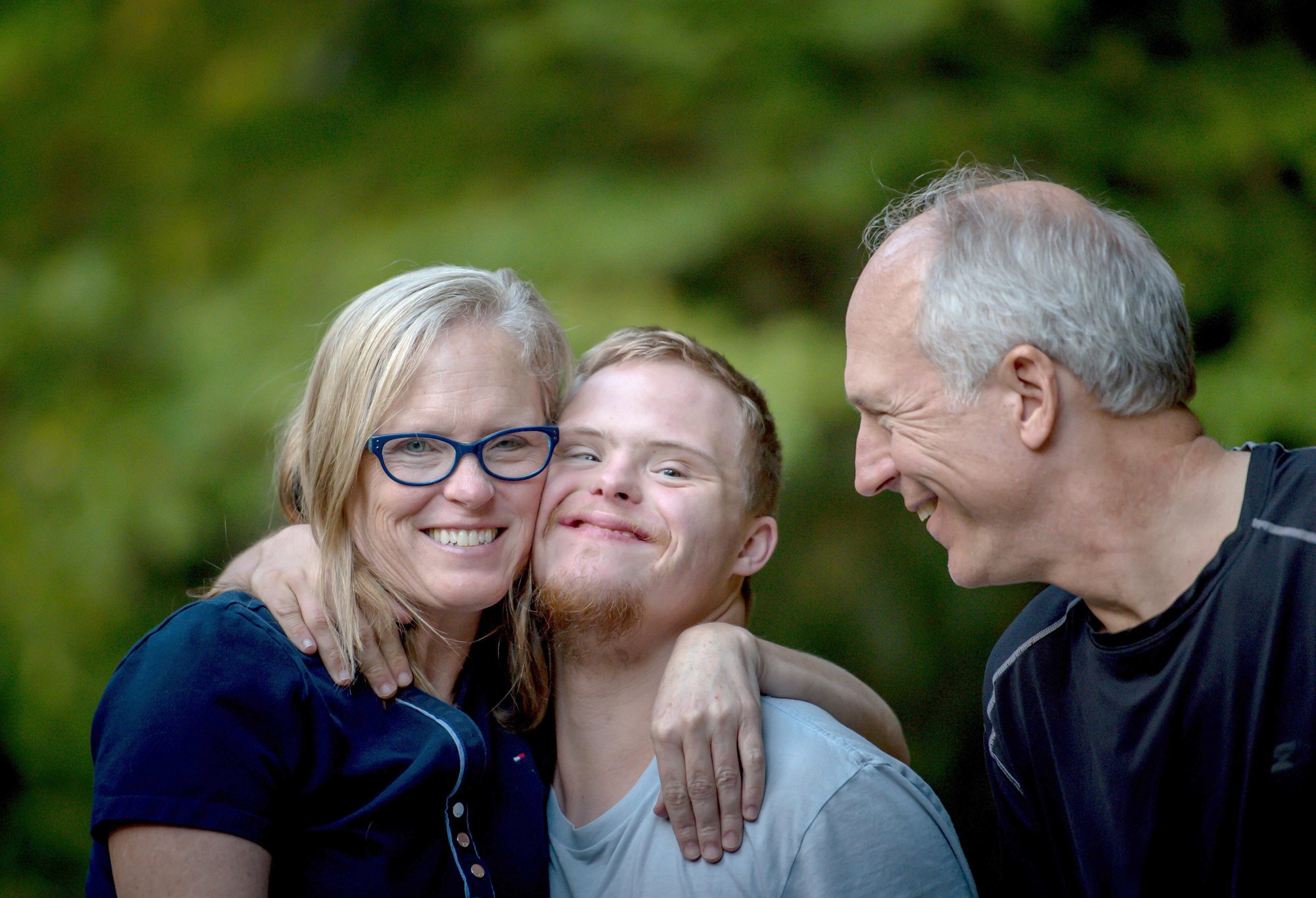About Us
We are here to help!
Autism Connections provides a wide variety of services through our Autism Centers in Easthampton and Pittsfield, as well as family and individual supports through referrals by the Department of Developmental Services.
Welcome to the Autism Center
Autism Connections provides support, information, and practical help for children and adults with autism (and their families) living in western Massachusetts.
Autism Connections was founded in 1989 by parents of children with autism. Their goal was to help families, schools, professionals, agencies, and communities understand autism, promote the well-being of individuals with autism and foster their inclusion within the local community.
We continue to focus on helping individuals and families build on their strengths, work together to create a positive vision for the future, and help children and adults learn, grow, and be welcomed, and fully-included members of our communities.

The Autism Center offers the following free services:
Information and referral
- Newsletter
- Resource Center
- Information packets on a variety of autism related topics
- Online Resource Directory (in process)
- Young adult and adult connections/support and social skills groups
- Parent-to-parent connections/support groups
- Educational Advocacy (this is a fee-based service)
- Social, sensory and recreational activities
- Education and training: workshops and small, free group clinics (example: IEP workshops to prepare your IEP)
- Annual Conference featuring nationally based speaker and local and regional resource representation
- Education and training for professionals (fee based for educators and organizations)
- Family and community focused events (example: picnics and holiday parties)
- Online social networking
These services are available to all individuals with autism and their families as well as professionals. Some fees may apply and are noted above.
Direct Services by Department of Disabilities referral
- Child and adult family-based individualized supports
- Intensive family supports
- Children's Waiver Program
- Agency with Choice
- DESE/DDS
Autism Connections' History
Autism Connections was founded in 1989 by parents of children with autism. Their goal was to help families, schools, professionals, agencies and communities understand autism, promote the well-being of individuals with autism, and foster their inclusion in the community.
Our goal today remains to help families build on their strengths, work together to create a positive vision for the future, and help their children learn, grow, and be welcomed, fully included members of their communities.
Autism Connections is directed by parents and other family members in partnership with autism professionals and other concerned citizens.
Established research has taught a few things over the years which guide our thoughts on supporting families:
- having a positive vision for your child’s future and building relationships is a key to success
- early diagnosis, intervention, and support are important
- services are most effective when tailored to the needs of the child and family, and delivered in a consistent, comprehensive, and coordinated fashion
- inclusion of children and adults with autism with typical peers in all activities using appropriate supports benefits the entire community
By providing information, advocacy, training and education, and family support in western Massachusetts, Autism Connections echoes the mission of its parent organization, ServiceNet.
Nancy Farnsworth
Educational Advocate, Info & Resources Managernancy.farnsworth@servicenet.org
413-779-5087
Catherine McEachern
Community Outreach & Education Coordinatorcatherine.mceachern@servicenet.org
413-345-2967
Autism Connections Program Board
Betsy Benton, Parent
Lisa Crouser, Program Committee
Paula Fredericks, Secretary-Program Committee
Bill Loomis, Board Liaison
Dan McManmon
Pamela Sandler, Berkshire Autism Initiative
Jeanne Zobel-Lachiusa, Program Committee

What is commonly referred to as “Autism” includes five disorders now often called “Autism Spectrum Disorders” (ASD).
The five are:
- Autism
- Childhood Disintegrative Disorder
- Pervasive Developmental Disorder (not otherwise specified)
- Rett Syndrome
- Asperger’s Syndrome
What is Autism?
Autism is a brain difference that can affect an individual’s ability to: communicate, relate to people and the environment in typical ways, understand and respond to sensory input (e.g. pain, touch, sound, taste), control movement, and learn and think in typical ways. The effects on learning and functioning can range from mild to severe. Even in its milder forms, functioning in socialization and communication can be very impaired.
Autism occurs in as many as 1 in 68 births nationally (Center for Disease Control). It is four times more common in males than females. Autism is found throughout the world in families of all racial, social, economic, and ethnic backgrounds. There are as many as 1.5 million people with Autism in the United States, and as many as 4,800 in Western Massachusetts. Recent estimates place the number of children from 3 to 18 alone at more than 1,100.
Although the causes of Autism are still unknown, research suggests that there is a strong genetic component with a variety of external and environmental triggers. No factors in the psychological environment of the child cause Autism.
Characteristics of Autism
There is great diversity among individuals with Autism. They vary in the extent to which they display the characteristics of Autism. Characteristics include:
- difficulty relating to people, objects and events
- repetitive movements such as rocking or spinning, head banging and hand twisting
- atypical reactions to sensory stimuli e.g. touch, sound, taste, pain
- insistence on certain routines
- difficulty with change and transitions
- limited or poor eye contact
- impaired communication skills
- use of toys and objects in an unconventional manner, little imaginative play
- may have typical or exceptional abilities in specific areas (e.g. putting puzzles together) but lack other basic skills (e.g. can’t follow directions)
Most specialists agree that a child should be evaluated for Autism immediately if he or she has:
- not babbled or cooed by one year
- not gestured, pointed or waved by one year
- not spoken a single word by 16 months
- not spoken a two-word phrase by two years
- experiences a loss of any language skills at any age
Supporting People with Autism
Research and experience indicate the following:
- Early diagnosis and appropriate intervention are most helpful in the future development of children and adults with Autism, but help at any age may make a significant difference. There are many examples of adults who live quite typical lives who had severe difficulties as children and adults.
- Services and support must be tailored to the needs of the individual child and be delivered in a consistent, comprehensive, and coordinated fashion.
- The inclusion of children and adults with Autism with typical peers in all activities using appropriate supports is beneficial to all.
- Many people with Autism respond best to structured, individualized educational programs. Programs using positive approaches based on a careful analysis of context, functions of behaviors, individual learning styles and information processing irregularities, have produced effective and durable results in teaching new skills and changing many of the behaviors typically displayed by children and adults with Autism. In addition, sensory integration, social skills training, dietary changes, vitamins, medications, and other interventions have also been used with success in some instances to address specific issues.

